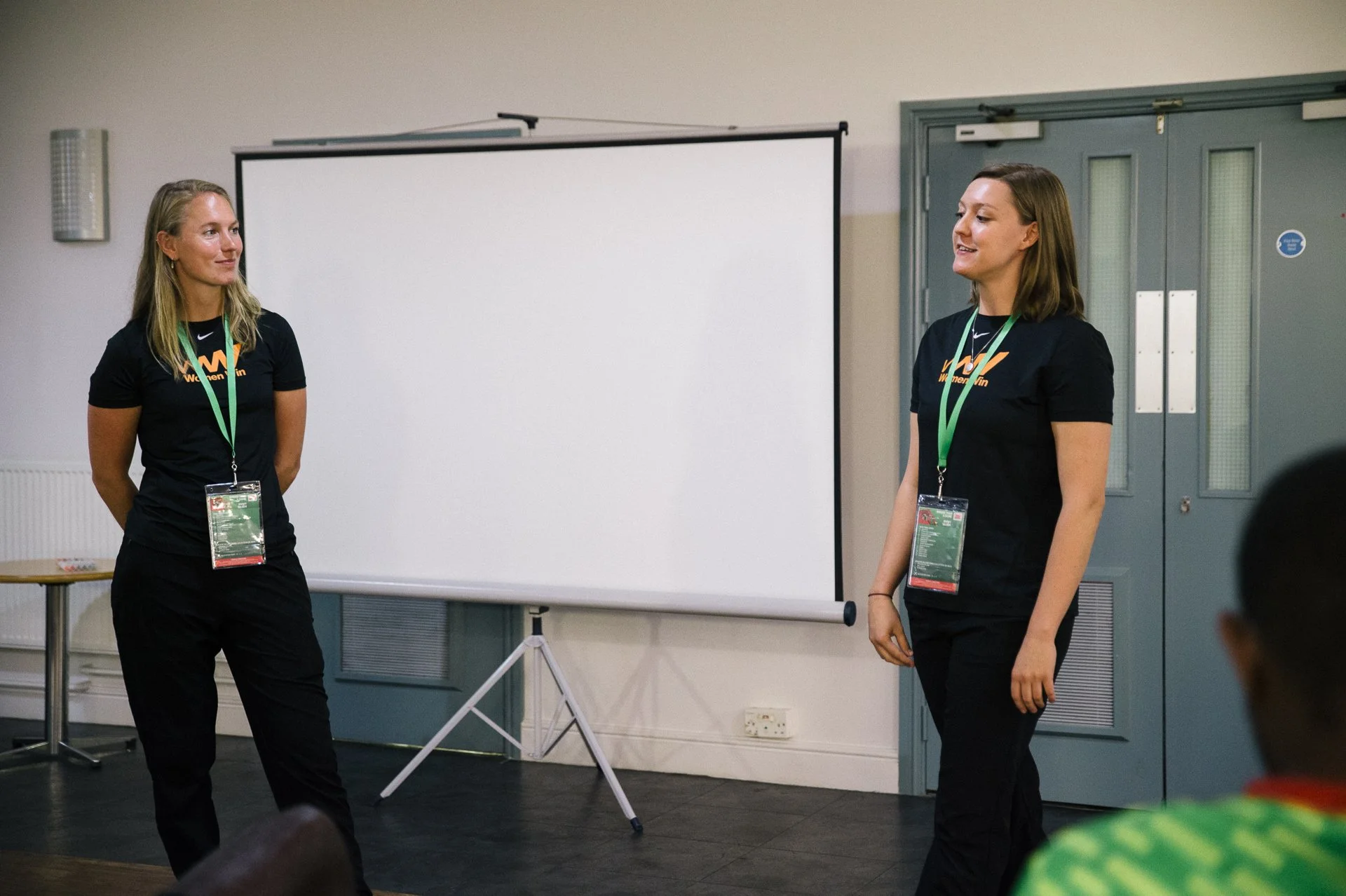Building inclusive football programmes
|Image: Daniel Lipinski
Putting ourselves in the shoes of a 12-year-old girl who can’t get to the sport field because it’s in a different ‘dodgy’ neighbourhood, or a 10-year-old who can’t join the sport club cause she has to work to contribute to the bills, or a young man who doesn’t want to play football but wants to do ballet, or a young girl who can’t play cause she’s a carer for her three younger siblings … The list is limitless.
So how does sport do it: bring people together as well as overcome what seems like an endless amount of barriers? The international sports organisation Women Win’s mission is to empower girls and young women through play by working with initiatives around the world, sparking conversation, collaboration, scrutiny, and activism. Their programmes and workshops use a gender-sensitive and a clear women’s-rights approach, encouraging us to continuously question our inclusivity, thus supporting the growth of a global playful and empowered community of women.
The Homeless World Cup works with a network of more than 70 street football partners from around the world that are all doing incredible work in removing barriers to sport for our world’s most marginalised communities. Approximately 10 of these partners and their leaders from across all continents took part in a brilliant session, ‘Gender Walk’, run by Women Win’s Marije Holman and Kitty Macklin.
|Image: Daniel Lipinski
Jack Badu, Engagement Officer for the homeless charity Centrepoint (Team England) explains what he took from the session and how it will influence his organisation’s future ways of working: “I thought it was really thought-provoking in terms of putting yourself in the shoes of a specific young person. I think always approaching your programme with a little bit of scrutiny and actually saying: Yes, we have x amount of people in our programme, but how can we get more? And who are we actually excluding by doing the things that we are doing? But also looking at it from the perspective of someone who is not there, who did we miss?
“The session made me think about how could we include other aspects like food, hospitality, art, branding, because there are people who might have an interest in aspects of sport, not necessarily playing, so thinking about how that person is still catered for.”
Women’s coaches Clare Carson and Claire Rea explained what thoughts the session provoked for them: “Being mindful of the inclusiveness of how you promote and create awareness around your programmes. What I found from doing the exercises is that by being in the shoes of a person, just one obstacle, and being fixated on that one obstacle, know matter what provision there is, means that you are already lost. Being in that person’s shoes, I couldn’t take any further steps to getting to that sport session or that sport ground.
“That is something that I think we need to keep reminding ourselves. Because for people who are already feeling a bit low in self worth, they will easily fixate on that one obstacle. So thinking more about a personable approach is really important, and that is something we will take home with us.”
Words: Deborah May
Images: Daniel Lipinski / Soda-Visual


